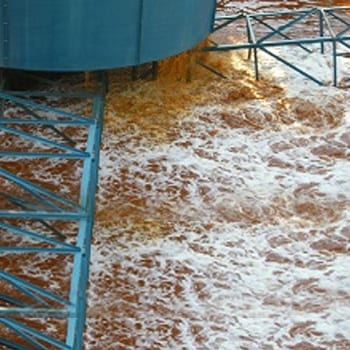What Is The Purpose Of Coagulation In Wastewater Treatment?
What Is the Purpose of Coagulation in Wastewater Treatment?
Coagulation is crucial for effective wastewater treatment. By using iron or aluminum salts—such as aluminum sulfate or ferric sulfate—this process brings insoluble materials together, allowing for solids removal, water clarification, lime softening, and sludge thickening. With coagulation, industrial facilities can:
- Achieve long-term process sustainability
- Reclaim water in near closed-loop systems
- Realize significant cost and efficiency savings
Rather than outsourcing, on-site treatment supported by coagulants helps maintain a reliable supply of clean water for industrial processes.
How Does Coagulation Work?
Coagulation involves neutralizing the negatively charged particles in your water by introducing coagulants with a positive charge. This step causes smaller particles to bind together into “flocs,” which then settle at the bottom of a clarifier or holding tank.
Key Pollutants Removed
- Organic Compounds & Dissolved Organics (NOM/DOC): Coagulation helps reduce unwanted color and odor.
- Inorganic Precipitates (Iron & Metals): These can be bound together and removed via sedimentation and filtration.
- Certain Viruses & Bacteria: Coagulation aids in removing many biological contaminants before final disinfection steps.
After settling, equipment like filter presses or other mechanical filtration units can remove these larger flocs, returning clean water to your system with minimal discharge.
Types of Coagulants
Choosing the right coagulant depends on your specific water quality needs, typically based on a particle analysis of dissolved and suspended solids.
Organic Coagulants
- PolyAMINEs & PolyDADMACs:
- Ideal for charge neutralization.
- Form a “microfloc” by bonding with negatively charged particles.
- Have minimal impact on pH.
- Melamine Formaldehydes & Tannins:
- Act similarly to inorganic coagulants by forming a “sweep-floc.”
- Can capture additional materials like oil and grease.
- Great choice for operations generating hazardous sludge.
Inorganic Coagulants
Often more cost-effective, inorganic coagulants work via a “sweep-floc” mechanism where aluminum or iron precipitates absorb impurities as they settle. Examples include:
- Aluminum Sulfate (Alum): Common, mild hazard profile, often the go-to choice.
- Aluminum Chloride & Polyaluminum Chloride (PAC): Similar to alum but more corrosive or better suited for basic water.
- Ferric Sulfate & Ferrous Sulfate: Effective for coagulation, can also provide soluble iron if required.
- Ferric Chloride: Least expensive but highly corrosive, often used when facilities can handle its hazardous nature.
Maximizing Coagulation with Filtration
After you add coagulants and allow flocs to form, mechanical processes like settling, clarification, and filtration handle the solid separation. High-quality coagulants and proper dosing help ensure by-products are removed alongside the floc.
- pH Adjusters, Corrosion Inhibitors, Biocides: Supplementary chemicals may be required for optimal results.
- High-Efficiency Filtration: Systems like filter presses and clarifiers can reclaim over 95% of water, creating near closed-loop operations.
How ChemREADY Can Help
ChemREADY offers complete solutions—from coagulant selection and dosing to mechanical filtration systems—to help you optimize water quality, reduce costs, and meet environmental standards. Our specialized coagulants, combined with pH adjusters, corrosion inhibitors, and biocides, ensure your facility maintains efficient and reliable performance. We also provide:
- Water Analysis Services to determine the best coagulant and dosage.
- Filtration Equipment including filter presses and clarifiers for maximum water reclamation.
- Expert Guidance on compliance, cost reduction, and sludge management.
Ready to Optimize Your Wastewater Treatment?
Contact ChemREADY for tailored water treatment solutions or request a quote and brochure. With the right coagulants and support, you can improve process sustainability, achieve near closed-loop water systems, and drive significant efficiency gains.

